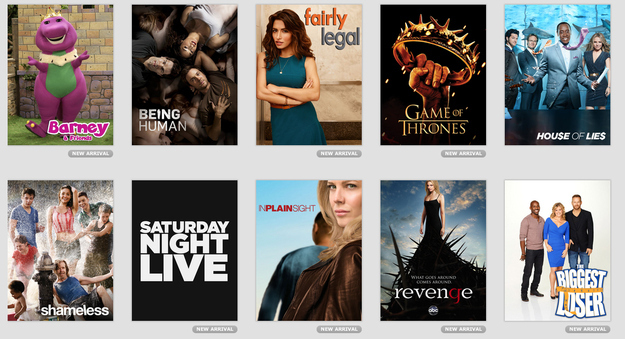
A very good thing: A ton of good television broadcast on Sunday nights. A kind of bad thing: not enough time or DVR space to watch or record it all.
So reports the New York Times in a trend piece entitled, "On Sundays, the DVR Runneth Over" that documents the plight of the "43 percent," people like Kelly Foster:
The digital video recorder in her living room taped “The Good Wife” on CBS, while she watched the broadcasts of “Nurse Jackie” on Showtime and “Girls” on HBO; meanwhile, the DVR in her bedroom backed up “Oprah’s Next Chapter” on OWN and “Mad Men” on AMC. By Thursday, she still hadn’t caught up with “Mad Men.”
This is really stupid. Not because people want to watch a lot of good TV, or because DVRs can only record two shows at a time, or even because networks are scheduling these shows to all be broadcast on the same night in the same time blocks, overlapping like the weave of a nice quilt that you want to be wrapped up in all the time. It's stupid because it shouldn't be a problem at all.
Time-shifting is so much a part of what we do that it seems silly to even call it that, like we're actually warping the way space and time work by reading an article later on our phone or pulling up a TV show on our DVR a day or six after it aired. There's no need to shift time if we ignore its existence. Which is exactly how we consume a lot of things now.
The internet taught us that everything is on demand. All the time. From a technology standpoint, there's no reason you can't start streaming Mad Men right after it airs, as soon as you've finished watching Game of Thrones and Girls — or any other show for that matter. And that's pretty much how the best services, like Comcast's Xfinity On Demand work. They don't arbitrarily limit the ways we watch things in the same way that broadcast television does — a limit that's arbitrary precisely there are far more ways to distribute content now than simple appointment-viewing broadcasts. (Update: Apparently some shows do take days to show up on Comcast's Xfinity — which kind of breaks a lot of what makes it interesting. Boo.)

If you don't have an enlightened cable provider, though, often the fastest way to watch something after it's aired (if you don't have a DVR) is to jump over to a site like EZTV.IT and download it an hour or two later. People aren't necessarily trying to steal television — well except maybe HBO, who should maybe think about monthly iPad subscriptions? — they just want to watch it when they want to watch it. Which, while there may be weird broadcasts rights issues, legacies of another era, there's no reason today, technologically (or just logically) speaking, that they can't.
DVRs, btw? Old and busted technology. A huge box with a giant hard drive, etching television programs into magnetic platters. How clunky. And noisy. How stupidly power hungry. Maybe that's why TiVo hasn't bothered making significant advances in its software or service in years. It's dead tech walking. The only box I want connected to my TV is an inch or two tall and has a footprint the size of a bag of coffee (unless it plays videogames), streaming or downloading the shows I want to watch, when I want to watch them, as soon as they air.
It seems fairly obvious that's the future of television: decentralized, time shifted, place shifted, scattered and ubiqutious. Just like every other medium disrupted by the internet. Like this. Sure, we'll still watch some things together, like the Super Bowl, but I'll watch everything else when I damn well please. It's just a matter of whether the cable company's going to sit along beside me.
